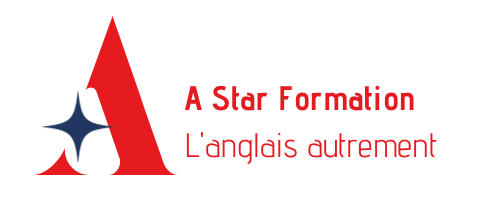Talking over coffee is effortless
You are comfortable expressing yourself on simple topics in English or about your work: everything you usually talk about in your daily life requires less effort and you feel perfectly at ease.
Imagine how great it would be if you could speak English without pausing while you look for your words and without tripping over your pronunciation. Imagine if you could say whatever you wanted to say on a conference call without worrying, or answer any question in a meeting easily.
That would be great, right?
You can get there, but it doesn’t happen overnight. Here are some ideas to make your journey to fluency quicker (Before we get there, would you like to download our free, printable Top Tips “cheat sheet”?):
- Immerse yourself in English. We all know this one, and hopefully you’re already doing it: Set your phone’s language to English. Listen to English radio. Watch TV and movies in English (subtitles are fine, in your language or in English.) Talk to yourself in English. Listen to podcasts. Read the newspaper in English. Watch youtube videos. Phone your English-speaking colleagues instead of sending a mail. When I was young, hardly any of these possibilities existed and now we have the whole world at our fingertips. Even if you’re not speaking English every day, just being surrounded by English will keep your brain attuned.
- Understand how your brain works: the reason it’s difficult to be fluent is because your brain has to first store the vocabulary you need to speak and then has to be able to retrieve it quickly. The better you store the vocabulary, the easier it is to retrieve it. That means when you learn a word, picture it in your mind. Associate it with another word. Use all your senses. Learning a list of vocabulary doesn’t work, because your brain won’t store it meaningfully, if it stores it at all.
- Your brain also has to retrieve the words quickly when it needs them. This just comes from practice: the more your brain retrieves a word, the easier and quicker it is for your brain to find it the next time. That’s why you need to use a new word immediately, and then again the next day, two days later, one week later etc. It’s called spaced repetition and it’s one of the keys to learning.
- Talk to yourself. Imagine you are having a conversation with someone and say out loud what you would say. Practise introducing yourself. If you have to make a presentation or talk about something in a meeting, this is very important that you practise it out loud as many times as possible. Whenever I have to present myself and my business in French, I make sure I have practised it at least 10 times out loud beforehand.
- You have to be ok with making mistakes, because you are going to make them, and sometimes they are even going to be embarrassing. If you are shy, or a perfectionist who doesn’t like things being wrong, give yourself a new persona. Did you know that when Beyonce is performing on stage, she is not Beyonce, she is Sasha Fierce? Giving herself a stage persona means she can do things that Beyonce would not do. Give yourself a name for the English speaker that you are. One of my clients, Benoit, calls his English-speaking person Brad. Brad is American, he’s not shy about speaking English and Brad speaks excellent English. Try it! It sounds crazy but it works.
- Find people to speak to. This could be your work colleagues, joining a conversation group, taking group lessons or joining a group online. The more you speak English, the easier it is to speak. I wanted to practise my French at a higher level so I joined a bilingual Toastmasters club so I would have to do presentations in French.
- Practise the topics you need to talk about. This is where having language coaching helps: you can identify the topics you need to be able to speak about for work and get feedback on where you are now, and how to improve. You should also use coaching time to practise speaking about more complex topics. Often we get stuck when we’re trying to explain something emotional, technical or political.
- Understand that your language and English are not the same. Sometimes you may feel that you are not expressing yourself well in English. In fact, you might be expressing yourself very well, but it’s just not the same as how you would say it in your own language. Immersing yourself in English will help you to understand a lot more about how English is structured, as will having language coaching.
Developing fluency takes time and practise. It also takes work, but if you choose to do things that you enjoy, it won’t seem like work. You will also have to push yourself out of your comfort zone. If you do this just a little at a time, you’ll look back a year later, and I promise you, you’ll be amazed at how far you have come.


